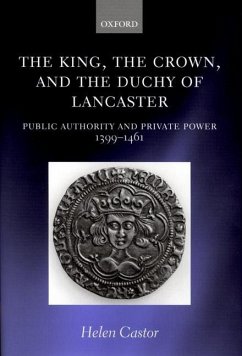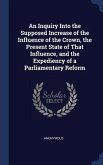In 1399 Henry Bolingbroke, duke of Lancaster, seized the throne of England to become Henry IV. From 1399, therefore, the Lancastrian kings - unlike their royal predecessors - commanded not only the public authority of the crown, but also the private power of the Duchy of Lancaster. Until now, this has been seen simply as an advantage to the Lancastrian crown, and as an uncontroversial part of the evolution of a 'royal affinity' during the later middle ages. However, this study makes clear that profound tensions existed between the role of the king and that of his alter ego, the duke of Lancaster. This book examines the complex relationship between the king, the crown and the Duchy of Lancaster at both a national and a local level, focusing particularly on the north midlands and East Anglia and, in so doing, sheds light on the nature and functioning of the late medieval English monarchy.
Henry IV, Henry V, and Henry VI were at the same time kings of England and dukes of Lancaster. This book examines the complex relationship between their public authority and their personal lordship over a private inheritance. In so doing, it sheds new light on late medieval English government at both national and local levels.
Hinweis: Dieser Artikel kann nur an eine deutsche Lieferadresse ausgeliefert werden.
Henry IV, Henry V, and Henry VI were at the same time kings of England and dukes of Lancaster. This book examines the complex relationship between their public authority and their personal lordship over a private inheritance. In so doing, it sheds new light on late medieval English government at both national and local levels.
Hinweis: Dieser Artikel kann nur an eine deutsche Lieferadresse ausgeliefert werden.








